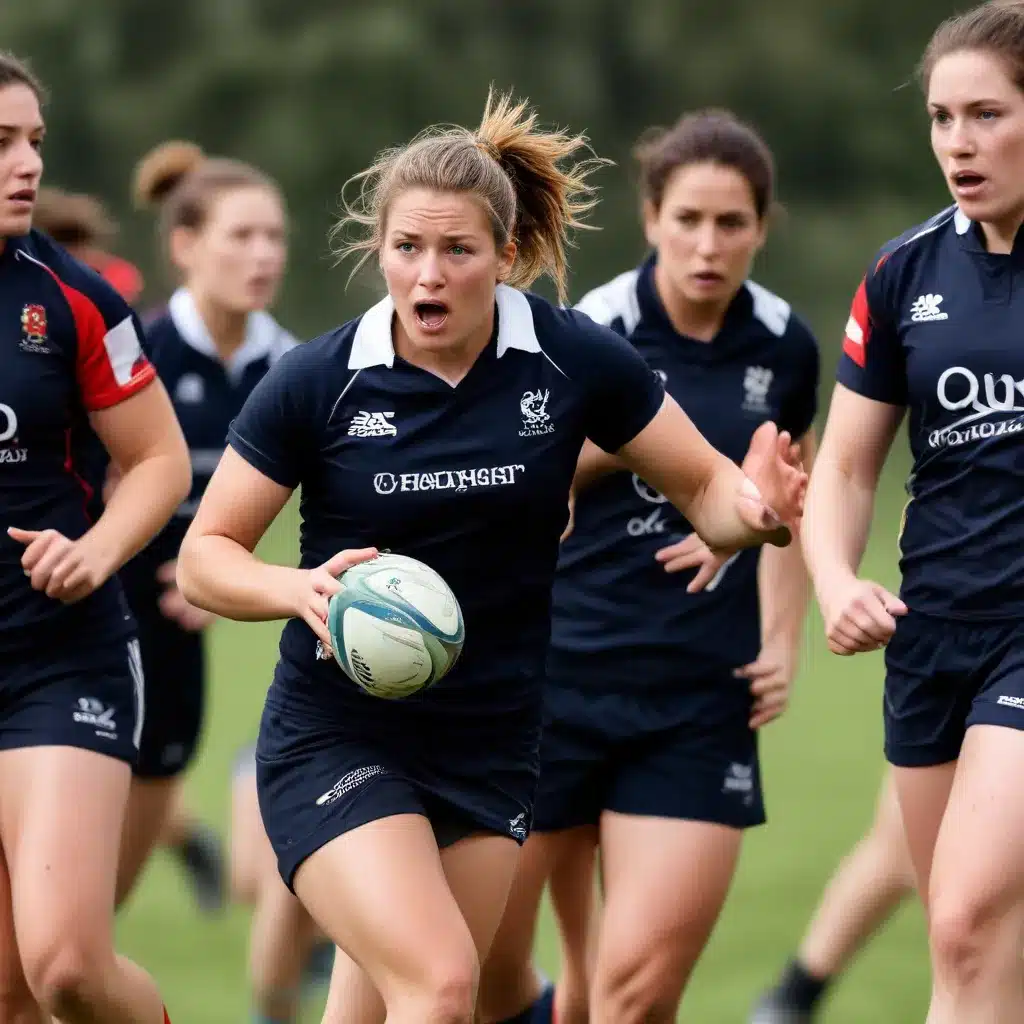
Understanding the Unique Aspects of Women’s Rugby Coaching
Coaching women’s rugby is a uniquely rewarding yet challenging endeavor. As a seasoned rugby professional, I’ve had the privilege of working with talented female athletes across various levels of the game. While the core fundamentals of the sport remain the same, the landscape of women’s rugby presents distinct considerations that require specialized knowledge and a tailored approach.
At the heart of women’s rugby coaching lies the opportunity to empower and elevate a rapidly growing segment of the sport. Unlike the long-established tradition of men’s rugby, the women’s game has flourished more recently, gaining traction and recognition on the global stage. As such, coaches in this domain play a pivotal role in shaping the future of the sport, fostering an environment that nurtures the aspirations and potential of female athletes.
Navigating the Challenges: Key Considerations
Coaching women’s rugby involves navigating a unique set of challenges that demand a high level of adaptability, empathy, and strategic thinking. Let’s explore some of the critical areas that require special attention:
Societal and Cultural Barriers
Women’s rugby, like many female-dominated sports, continues to grapple with deeply rooted societal and cultural biases. Gender stereotypes, a lack of visible role models, and limited access to resources and funding can create significant hurdles for coaches and players alike. Overcoming these barriers requires a proactive approach to increasing visibility, challenging preconceptions, and advocating for equitable support.
Balancing Work, Family, and Rugby Commitments
Many female rugby players juggle demanding careers, family responsibilities, and their passion for the sport. Coaches must be sensitive to these competing priorities and work closely with their players to develop flexible training schedules, accommodate family commitments, and foster an environment that recognizes the unique challenges faced by women in rugby.
Addressing Physical and Physiological Differences
While the core skills and tactics of the game remain universal, women’s rugby presents distinct physical and physiological considerations. Coaches must be well-versed in understanding the nuances of female physiology, including menstrual cycles, pregnancy, and hormonal fluctuations, and their impact on training, recovery, and performance.
Fostering Inclusive and Empowering Team Dynamics
Building a cohesive and supportive team culture is paramount in women’s rugby. Coaches must navigate diverse personalities, skill levels, and backgrounds, fostering an environment where every player feels valued, empowered, and invested in the team’s success. Effective communication, conflict resolution, and an emphasis on personal growth and development are key.
Strategies for Effective Coaching in Women’s Rugby
To tackle the unique challenges of coaching women’s rugby, coaches must be equipped with a comprehensive toolkit of strategies and best practices. Here are some key approaches to consider:
Tailoring Player Development Approaches
Effective coaches in the women’s game understand the importance of individualized training and skill development. This entails adapting coaching methodologies to address each player’s strengths, weaknesses, and learning preferences, ensuring they can reach their full potential.
Additionally, addressing mental health and well-being is crucial. Coaches must be proactive in providing support, fostering open dialogue, and implementing holistic strategies to help players navigate the demands of the sport.
Optimizing Team Management and Leadership
Successful women’s rugby coaches excel in their ability to manage team dynamics and provide impactful leadership. This involves honing communication skills, conflict resolution techniques, and strategies for motivating and empowering players. By cultivating a culture of trust, respect, and shared ownership, coaches can unlock the full potential of their teams.
Furthermore, coaches must stay at the forefront of performance analysis, utilizing data-driven insights to inform training, game planning, and player development. Embracing innovative technologies and collaborating with sports science experts can elevate the team’s overall performance.
Securing Resources and Building Partnerships
Navigating the often-limited resources available in women’s rugby requires creativity and strategic partnerships. Coaches must be skilled in securing funding, engaging with sponsors, and collaborating with grassroots organizations to access the necessary equipment, facilities, and support systems.
By forging strong connections within the rugby community and advocating for increased investment in the women’s game, coaches can help drive the growth and visibility of the sport, ultimately paving the way for a more equitable and sustainable future.
Fostering Inclusivity and Diversity in Women’s Rugby
As stewards of the women’s game, coaches have a crucial responsibility to promote inclusivity and diversity within their teams and the broader rugby community. This involves actively addressing intersectional challenges, creating welcoming environments, and empowering players from all backgrounds to participate and thrive.
Coaches must be proactive in their efforts to increase representation, challenge stereotypes, and celebrate the diverse narratives that shape the women’s rugby landscape. By fostering an inclusive culture, coaches can inspire the next generation of female rugby players and coaches, driving positive change within the sport.
Conclusion: Empowering the Future of Women’s Rugby Coaching
The role of the women’s rugby coach extends far beyond the training pitch and match day. It is a multifaceted responsibility that requires a deep understanding of the sport, a passion for player development, and a steadfast commitment to creating an equitable and inclusive environment.
As we navigate the persistent challenges and seize the transformative potential of women’s rugby coaching, the future of the sport rests in the hands of dedicated coaches who are willing to innovate, advocate, and empower the next generation of female athletes. By embracing the unique complexities of the women’s game, we can unlock the true power of rugby and inspire lasting change, not just on the field, but in the hearts and minds of all who love the sport.
